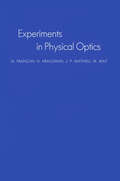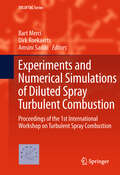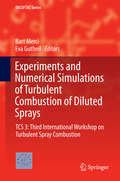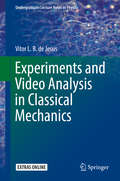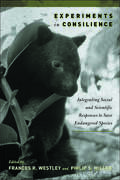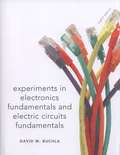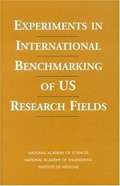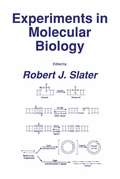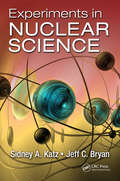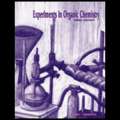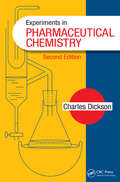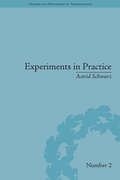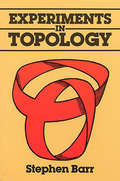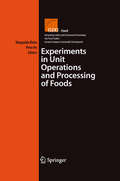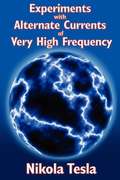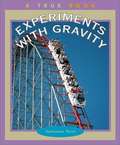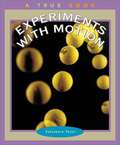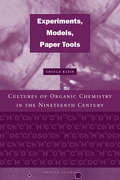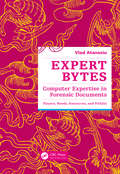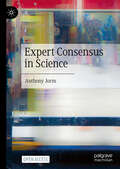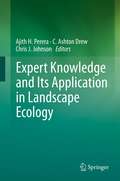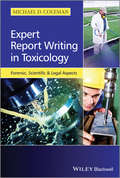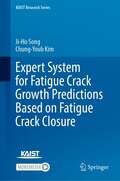- Table View
- List View
Experiments In Ecology
by A. J. UnderwoodEcological theories and hypotheses are usually complex because of natural variability in space and time, which often makes the design of experiments difficult. The statistical tests we use require data to be collected carefully and with proper regard to the needs of these tests. This book, first published in 1996, describes how to design ecological experiments from a statistical basis using analysis of variance, so that we can draw reliable conclusions. The logical procedures that lead to a need for experiments are described, followed by an introduction to simple statistical tests. This leads to a detailed account of analysis of variance, looking at procedures, assumptions and problems. One-factor analysis is extended to nested (hierarchical) designs and factorial analysis. Finally, some regression methods for examining relationships between variables are covered. Examples of ecological experiments are used throughout to illustrate the procedures and examine problems. This book will be invaluable to practising ecologists as well as advanced students involved in experimental design.
Experiments In Physical Optics
by M. Francon N. Krauzman J.P. Mathieu M. MayExperiments in physical optics for undergraduate and graduate classes. Provides the theoretical basis of each experiment and describes the apparatus required and necessary adjustments. Most of the experiments require only lenses, prisms, mirrors, and polarizers, and can be projected on a lecture screen or viewed by television.
Experiments and Numerical Simulations of Diluted Spray Turbulent Combustion
by Bart Merci Dirk Roekaerts Amsini SadikiThis book reflects the outcome of the 1st International Workshop on Turbulent Spray Combustion held in 2009 in Corsica (France). The focus is on reporting the progress of experimental and numerical techniques in two-phase flows, with emphasis on spray combustion. The motivation for studies in this area is that knowledge of the dominant phenomena and their interactions in such flow systems is essential for the development of predictive models and their use in combustor and gas turbine design. This necessitates the development of accurate experimental methods and numerical modelling techniques. The workshop aimed at providing an opportunity for experts and young researchers to present the state-of-the-art, discuss new developments or techniques and exchange ideas in the areas of experimentations, modelling and simulation of reactive multiphase flows. The first two papers reflect the contents of the invited lectures, given by experts in the field of turbulent spray combustion. The first concerns computational issues, while the second deals with experiments. These lectures initiated very interesting and interactive discussions among the researchers, further pursued in contributed poster presentations. Contributions 3 and 4 focus on some aspects of the impact of the interaction between fuel evaporation and combustion on spray combustion in the context of gas turbines, while the final article deals with the interaction between evaporation and turbulence.
Experiments and Numerical Simulations of Turbulent Combustion of Diluted Sprays
by Bart Merci Eva GutheilThis book reflects the results of the 2nd and 3rd International Workshops on Turbulent Spray Combustion. The focus is on progress in experiments and numerical simulations for two-phase flows, with emphasis on spray combustion. Knowledge of the dominant phenomena and their interactions allows development of predictive models and their use in combustor and gas turbine design. Experts and young researchers present the state-of-the-art results, report on the latest developments and exchange ideas in the areas of experiments, modelling and simulation of reactive multiphase flows. The first chapter reflects on flame structure, auto-ignition and atomization with reference to well-characterized burners, to be implemented by modellers with relative ease. The second chapter presents an overview of first simulation results on target test cases, developed at the occasion of the 1st International Workshop on Turbulent Spray Combustion. In the third chapter, evaporation rate modelling aspects are covered, while the fourth chapter deals with evaporation effects in the context of flamelet models. In chapter five, LES simulation results are discussed for variable fuel and mass loading. The final chapter discusses PDF modelling of turbulent spray combustion. In short, the contributions in this book are highly valuable for the research community in this field, providing in-depth insight into some of the many aspects of dilute turbulent spray combustion.
Experiments and Video Analysis in Classical Mechanics (Undergraduate Lecture Notes in Physics)
by Vitor L. B. de JesusThis book is an experimental physics textbook on classical mechanics focusing on the development of experimental skills by means of discussion of different aspects of the experimental setup and the assessment of common issues such as accuracy and graphical representation. The most important topics of an experimental physics course on mechanics are covered and the main concepts are explored in detail. Each chapter didactically connects the experiment and the theoretical models available to explain it. Real data from the proposed experiments are presented and a clear discussion over the theoretical models is given. Special attention is also dedicated to the experimental uncertainty of measurements and graphical representation of the results. In many of the experiments, the application of video analysis is proposed and compared with traditional methods.
Experiments in Consilience: Integrating Social And Scientific Responses To Save Endangered Species
by Frances Westley Philip S. MillerIn his 1998 book Consilience, E.O. Wilson set forth the idea that integrating knowledge and insights from across the spectrum of human study -- the humanities, social science, and natural sciences -- is the key to solving complex environmental and social problems. Experiments in Consilience tells the unique story of a pathbreaking effort to apply this theoretical construct in a real-world setting. The book describes the work of the Biodiversity Research Network, a team of experts from the United States and Canada brought together to build interdisciplinary connections and stimulate an exchange of expertise. Team members sought to understand the ecology and population dynamics of key species in particular ecosystems, to understand the impact of human populations on those species and ecosystems, and to develop tools and processes for involving a greater variety of stakeholders in conservation efforts. In order to keep the experiment grounded, the network focused on a single type of conservation planning workshop run by a single organization -- the Population and Habitat Viability Assessment Workshop (PHVA) of the IUCN-sponsored Conservation Breeding Specialist Group (CBSG). The book combines sections on the theoretical underpinnings of relevant concepts in population biology, simulation modeling, and social science with detailed descriptions of six PHVA workshops conducted on different species across four continents. Through the combination of theory and application, combined with frank discussions of what the research network learned -- including both successes and failures -- the book offers fresh ideas on how to improve on-the-ground conservation decisionmaking. Experiments in Consilience offers a one-of-a-kind overview and introduction to the challenges of cross-disciplinary analysis as well as cross-functional, cross-disciplinary and cross-sectoral action.
Experiments in Electronics Fundamentals and Electric Circuits Fundamentals, Eighth Edition
by David M. BuchlaThis laboratory manual is designed to accompany Electronics Fundamentals. The manual is designed to help you measure and record data as efficiently as possible.
Experiments in International Benchmarking of US Research Fields
by Institute of Medicine National Academy of Engineering National Academy of ScienceInformation on the Experiments in International Benchmarking of US Research Fields
Experiments in Molecular Biology
by Robert J. SlaterResearch in the field of molecular biology has progressed at a fascinating rate in recent years. Much of this progress results from the development of new laboratory techniques that allow very precise fractionation and analysis of nucleic acids and proteins, as well as the construction of recombinant DNA molecules that can then be cloned and expressed in host cells. Progress has been so rapid that there has been a shortfall in the training of appropriately qualified staff. Many existing laboratory workers require retraining, and many educational institutions have had difficulty incorporating the new molecular biology techniques into their teaching programs. Although there are several manuals currently available that describe laboratory techniques in molecular biology, they are principally written for the individual research worker and are not intended for use in the design of practical classes for students. The aim of this book is to provide just such a series of protocols for the teaching of practical molecular biology. The idea arose following the success of several Workshops in Molecular Biology, organized and taught by staff in the Biology Department of the Hatfield Polytechnic. Gradually, the protocols used in the workshops have been incorporated into the Hatfield undergraduate and postgraduate teaching pro grams and have now been collected together to form a book.
Experiments in Nuclear Science
by Sidney A. Katz Jeff C. BryanExperiments in Nuclear Science is an introductory-level laboratory manual providing hands-on opportunities for developing insights into the origins and properties of nuclear radiations, their interactions with matter, their detection and measurement, and their applications in the physical and life sciences. Based on experiments successfully perform
Experiments in Organic Chemistry
by Richard Hill John BarbaroThis laboratory manual is intended for use in an introductory course in organic chemistry. The authors have used it both in the full-year course for chemistry majors and premedical students and in shorter sequences designed for students in the biological sciences, pharmacy, nursing, agriculture, and nutrition. A unique feature of this manual is the inclusion of a number of Mystery Reactions. These are experiments in which the outcome and nature of the reaction product are not given, posing a mystery for the student to solve. The organic chemistry laboratory provides a wonderful opportunity to practice the application of logical reasoning and deduction in the solution of structural problems.
Experiments in Pharmaceutical Chemistry
by Charles DicksonWritten by an author with more than 40 years of teaching experience in the field, Experiments in Pharmaceutical Chemistry, Second Edition responds to a critical classroom need for material on directed laboratory investigations in biological and pharmaceutical chemistry. This new edition supplies 75 experiments, expanding the range of topics to 22 m
Experiments in Practice (History and Philosophy of Technoscience #2)
by Astrid SchwarzTraditionally experimentation has been understood as an activity performed within the laboratory, but in the twenty-first century this view is being challenged. Schwarz uses ecological and environmental case studies to show how scientific experiments can transcend the laboratory.
Experiments in Topology
by Stephen Barr"A mathematician named KleinThought the Moebius band was divine.Said he: 'If you glueThe edges of two,You'll get a weird bottle like mine.' " -- Stephen BarrIn this lively book, the classic in its field, a master of recreational topology invites readers to venture into such tantalizing topological realms as continuity and connectedness via the Klein bottle and the Moebius strip. Beginning with a definition of topology and a discussion of Euler's theorem, Mr. Barr brings wit and clarity to these topics:New Surfaces (Orientability, Dimension, The Klein Bottle, etc.)The Shortest Moebius StripThe Conical Moebius StripThe Klein BottleThe Projective Plane (Symmetry)Map ColoringNetworks (Koenigsberg Bridges, Betti Numbers, Knots)The Trial of the Punctured TorusContinuity and Discreteness ("Next Number," Continuity, Neighborhoods, Limit Points)Sets (Valid or Merely True? Venn Diagrams, Open and Closed Sets, Transformations, Mapping, Homotopy)With this book and a square sheet of paper, the reader can make paper Klein bottles, step by step; then, by intersecting or cutting the bottle, make Moebius strips. Conical Moebius strips, projective planes, the principle of map coloring, the classic problem of the Koenigsberg bridges, and many more aspects of topology are carefully and concisely illuminated by the author's informal and entertaining approach.Now in this inexpensive paperback edition, Experiments in Topology belongs in the library of any math enthusiast with a taste for brainteasing adventures in the byways of mathematics.
Experiments in Unit Operations and Processing of Foods
by Maria Margarida Cortez Vieira Peter HoIn chemical engineering and related fields, a unit operation is a basic step in a process. For example in milk processing, homogenization, pasteurization, chilling, and packaging are each unit operations which are connected to create the overall process. A process may have many unit operations to obtain the desired product. The book will cover many different unit operations as they apply to food processing.
Experiments with Alternate Currents of Very High Frequency
by Nikola TeslaHere is one of Nikola Tesla's most important lectures; it brightened the world and everything in it. Of all these phenomena the most important to study' are the current phenomena, on account of the already extensive and evergrowing use of currents for industrial purposes. It is now a century since the first practical source of current was produced, and, ever since, the phenomena which accompany the flow of currents have been diligently studied, and through the untiring efforts of scientific men the simple laws which govern them have been discovered.
Experiments with Gravitie (True Books: Science Experiments)
by Salvatore TocciLearn about gravity through a series of nine different experiments.
Experiments with Motion (True Books: Science Experiments)
by Salvatore TocciLearn about Motion through a series of nine experiments.
Experiments with Plants: A True Book
by Salvatore TocciNine easy-to-follow experiments help readers explore what a plant is, what it needs to grow and live, what's inside a plant seed, and how seeds grow and get spread in the wild.
Experiments, Models, Paper Tools: Cultures of Organic Chemistry in the Nineteenth Century (Writing Science Ser. #61)
by Ursula KleinIn the early nineteenth century, chemistry emerged in Europe as a truly experimental discipline. What set this process in motion, and how did it evolve? Experimentalization in chemistry was driven by a seemingly innocuous tool: the sign system of chemical formulas invented by the Swedish chemist Jacob Berzelius. By tracing the history of this "paper tool," the author reveals how chemistry quickly lost its orientation to natural history and became a major productive force in industrial society. These formulas were not merely a convenient shorthand, but productive tools for creating order amid the chaos of early nineteenth-century organic chemistry. With these formulas, chemists could create a multifaceted world on paper, which they then correlated with experiments and the traces produced in test tubes and flasks. The author's semiotic approach to the formulas allows her to show in detail how their particular semantic and representational qualities made them especially useful as paper tools for productive application.
Expert Bytes: Computer Expertise in Forensic Documents - Players, Needs, Resources and Pitfalls
by Vlad AtanasiuExpert Bytes: Computer Expertise in Forensic Documents Players, Needs, Resources and Pitfallsintroduces computer scientists and forensic document examiners to the computer expertise of forensic documents and assists them with the design of research projects in this interdisciplinary field. This is not a textbook on how to perform the actua
Expert Consensus in Science
by Anthony JormThis Open Access book shows how expert consensus pervades all areas of science. It explores, in particular, the role of consensus in establishing scientific truth, in guiding professional practice and policy and agreeing on what are acceptable scientific methodologies. For some scientific issues, a consensus forms spontaneously among scientists working on a topic, while for others, where the issues are complex, a formal deliberative consensus process is commonly needed. Deliberative consensus processes are becoming more important as scientists increasingly deal with complex multi-disciplinary issues of policy importance such as climate change due to human activity. While deliberative consensus processes are commonly used, they often lead to criticism from consensus skeptics. The book argues that deliberative consensus processes in science can be improved and proposes a number of realistic ways forward, ending with a discussion of whether communicating the scientific consensus on a topic is a good way to persuade the public.
Expert Knowledge and Its Application in Landscape Ecology
by C. Ashton Drew Chris J. Johnson Ajith H. PereraTypically, landscape ecologists use empirical observations to conduct research and devise solutions for applied problems in conservation and management. In some instances, they rely on advice and input of experienced professionals in both developing and applying knowledge. Given the wealth of expert knowledge and the risks of its informal and implicit applications in landscape ecology, it is necessary to formally recognize and characterize expert knowledge and bring rigor to methods for its applications. In this context, the broad goal of this book is to introduce the concept of expert knowledge and examine its role in landscape ecological applications. We plan to do so in three steps: First we introduce the topic to landscape ecologists, explore salient characteristics of experts and expert knowledge, and describe methods used in capturing and formalizing that knowledge. Second, we present examples of research in landscape ecology from a variety of ecosystems and geographic locations that formally incorporate expert knowledge. These case studies address a range of topics that will interest landscape ecologists and other resource management and conservation professionals including the specific roles of expert knowledge in developing, testing, parameterizing, and applying models; estimating the uncertainty in expert knowledge; developing methods of formalizing and incorporating expert knowledge; and using expert knowledge as competing models and a source of alternate hypotheses. Third, we synthesize the state of knowledge on this topic and critically examine the advantages and disadvantages of incorporating expert knowledge in landscape ecological applications. The disciplinary subject areas we address are broad and cover much of the scope of contemporary landscape ecology, including broad-scale forest management and conservation, quantifying forest disturbances and succession, conservation of habitats for a range of avian and mammal species, vulnerability and conservation of marine ecosystems, and the spread and impacts of invasive plants. This text incorporates the collective experience and knowledge of over 35 researchers in landscape ecology representing a diverse range of disciplinary subject areas and geographic locations. Through this text, we will catalyze further thought and investigations on expert knowledge among the target readership of researchers, practitioners, and graduate students in landscape ecology.
Expert Report Writing in Toxicology: Forensic, Scientific and Legal Aspects
by Michael D. ColemanEvery year throughout the world, individuals' health is damaged by their exposure to toxic chemicals at work. In most cases these problems will resolve, but many will sustain permanent damage. Whilst any justified claim for compensation requires medical and legal evidence a crucial and often controversial component of this process is the establishment of a causal link between the individual's condition and exposure to a specific chemical or substance. Causation, in terms of how a substance or substances led the claimant to his or her current plight, can be difficult to establish and the main purpose of this book, is to provide the aspiring expert report writer with a concise, practical guide that uses case histories to illuminate the process of establishing causation in occupational toxicity proceedings. In summary: A practical, accessible guide to the preparation of balanced, scientifically sound expert reports in the context of occupational toxicology. Focuses on the scientist’s role in establishing a causal link between exposure to toxins and an individual’s ill health. Includes real-life case histories drawn from the Author’s 15 years experience in this area to illustrate the principles involved. Expert Report Writing in Toxicology: Forensic, Scientific and Legal Aspects proves invaluable to scientists across a range of disciplines needing guidance as to what is expected of them in terms of the best use of their expertise and how to present their findings in a manner that is authoritative, balanced and informative.
Expert System for Fatigue Crack Growth Predictions Based on Fatigue Crack Closure (KAIST Research Series)
by Ji-Ho Song Chung-Youb KimThis book demonstrates fatigue crack growth under random loading graphically. This state-of-the-art monograph introduces an expert system for crack growth predictions, particularly based on crack closure. The system is developed after years of research by the authors by using the Math-type software consisting of 5 parts. This system is unique as it is fundamentally different from previous systems as it focuses on fatigue crack growth predictions based on fatigue crack closure. This book can be a useful guide for practicing engineers, researchers, and students in the fields of mechanical, aerospace, or civil engineering.

